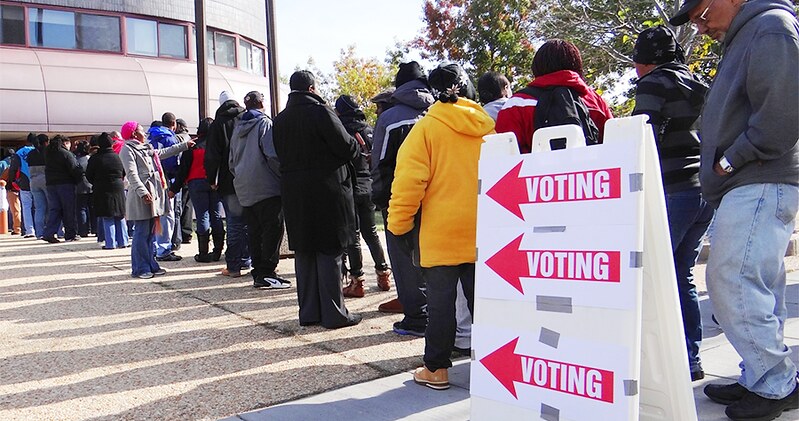The once-ubiquitous role of Facebook as a fundraising powerhouse for conservative campaigns is undergoing a seismic shift.
What to know:
-
Facebook's significance in conservative fundraising is dwindling, with experts like Mike Hahn asserting its ineffectiveness.
-
The emergence of alternative strategies, such as rev share models, signals a shift away from traditional reliance on Facebook.
-
Challenges including declining donor engagement and content suppression on the platform are driving conservative campaigns to explore new avenues.
-
Data-driven approaches, highlighted by Hahn, are becoming crucial in navigating the evolving landscape of digital fundraising.
-
Conservative campaigns are urged to diversify their fundraising strategies and leverage innovative models beyond Facebook for sustained success.
In the realm of conservative fundraising, a seismic shift is underway as the once-dominant role of Facebook undergoes a rapid decline. No longer the golden goose of campaign financing, Facebook's efficacy in rallying support and generating donations has waned considerably. This shift is underscored by the insights of seasoned strategist Mike Hahn, who bluntly declares, "Facebook's dead."
Such a proclamation, while startling, reflects a broader trend observed by industry experts, signaling a fundamental reevaluation of fundraising strategies among conservative campaigns. It is becoming more and more obvious as we explore this changing environment that traditional reliance on Facebook is untenable in the modern digital sphere. Let us explore the factors driving this departure from Facebook and the emerging pathways forward for conservative fundraising endeavors.
The Rise of Data-Driven Fundraising Strategies
The landscape of Republican fundraising is undergoing a significant transformation, with data emerging as a pivotal force shaping campaign tactics. According to seasoned strategist Mike Hahn, the role of data in Republican politics mirrors the digital landscape of a decade ago. Hahn's assertion highlights a critical yet often overlooked aspect of campaign strategy – the utilization of data. As he aptly puts it, "The data side of Republican politics is what digital was 10 years ago. People are kind of confused about it." This sentiment underscores the need for campaigns to adapt and harness the power of data-driven approaches to effectively engage with donors and constituents.
Hahn predicts a forthcoming evolution in campaign structures, with the emergence of dedicated data directors alongside traditional political and digital directors. This forecast underscores the growing recognition of data's central role in shaping campaign strategies and decision-making processes. As campaigns increasingly recognize the importance of data-driven insights, the demand for specialized expertise in data management and analysis is expected to rise.
Within this shifting landscape, rev share models have emerged as a viable alternative to traditional fundraising platforms like Facebook. These models offer a unique solution to the challenges faced by conservative campaigns, allowing them to tap into the networks of existing donors to reach new contributors. As Hahn explains, "Rev share models allow campaigns to tap into the networks of their existing donors to reach new donors." By leveraging existing donor networks and incentivizing grassroots outreach, rev share models provide campaigns with a cost-effective and efficient means of expanding their donor base.
Challenges with Facebook as a Fundraising Platform
As Facebook's influence wanes in the realm of conservative fundraising, significant challenges have emerged, contributing to its declining effectiveness as a fundraising platform. One key challenge is the noticeable decline in donor engagement and the diminishing effectiveness of fundraising efforts on the platform. This decline can be attributed in part to Facebook's evolving algorithms, which have had a substantial impact on the visibility of conservative content. As content visibility decreases, campaigns struggle to effectively reach and engage with their target audience, resulting in a decline in donor participation and support.
These issues have been made worse by Facebook's suppression of conservative groups and content. Numerous examples illustrate Facebook's actions against conservative movements, including the removal of pages, groups, and posts deemed to violate the platform's community standards. This suppression has led to growing concerns among conservative campaigns regarding their ability to effectively utilize Facebook as a fundraising tool.
The Impact on Conservative Fundraising Efforts
As conservative fundraising endeavors grapple with the declining efficacy of Facebook as a primary platform, significant impacts on fundraising efforts have become increasingly evident. One notable consequence is the reduction in fundraising potential and donor acquisition opportunities. Relying solely on Facebook for fundraising purposes presents limitations, particularly in light of the platform's evolving algorithms and content suppression practices. As a result, conservative campaigns face challenges in effectively reaching and engaging with potential donors, ultimately hindering their ability to maximize fundraising potential and expand their donor base.
To address these challenges, there is a pressing need for diversification in digital fundraising strategies among conservative campaigns. Exploring alternative platforms and models beyond Facebook is paramount to overcoming the limitations imposed by its declining effectiveness. By diversifying their fundraising efforts and embracing innovative approaches, conservative campaigns can mitigate reliance on any single platform and tap into new avenues for donor acquisition and engagement.
Navigating the Future of Conservative Fundraising
As conservative fundraising ventures chart their course forward amidst shifting digital landscapes, adaptation and innovation are paramount. Strategies for embracing innovative fundraising models are essential in navigating the evolving terrain. By diversifying fundraising approaches and exploring alternative platforms and models, conservative campaigns can mitigate reliance on Facebook and unlock new avenues for donor engagement and support.
The significance of utilizing data for focused outreach cannot be emphasized enough. As highlighted by Mike Hahn, "Improved donor engagement: Rev share partners often have tools and strategies that can help campaigns engage with their donors more effectively." By harnessing data-driven insights and partnering with rev share models, conservative campaigns can optimize their outreach efforts and enhance donor engagement, ultimately driving greater fundraising success.
In conclusion, the future of conservative fundraising beyond Facebook hinges on adaptation, diversification, and data-driven strategies. A recap of key points underscores the implications for conservative campaigns, emphasizing the need to embrace change, leverage data effectively, and explore innovative fundraising models to thrive in the evolving digital landscape.





